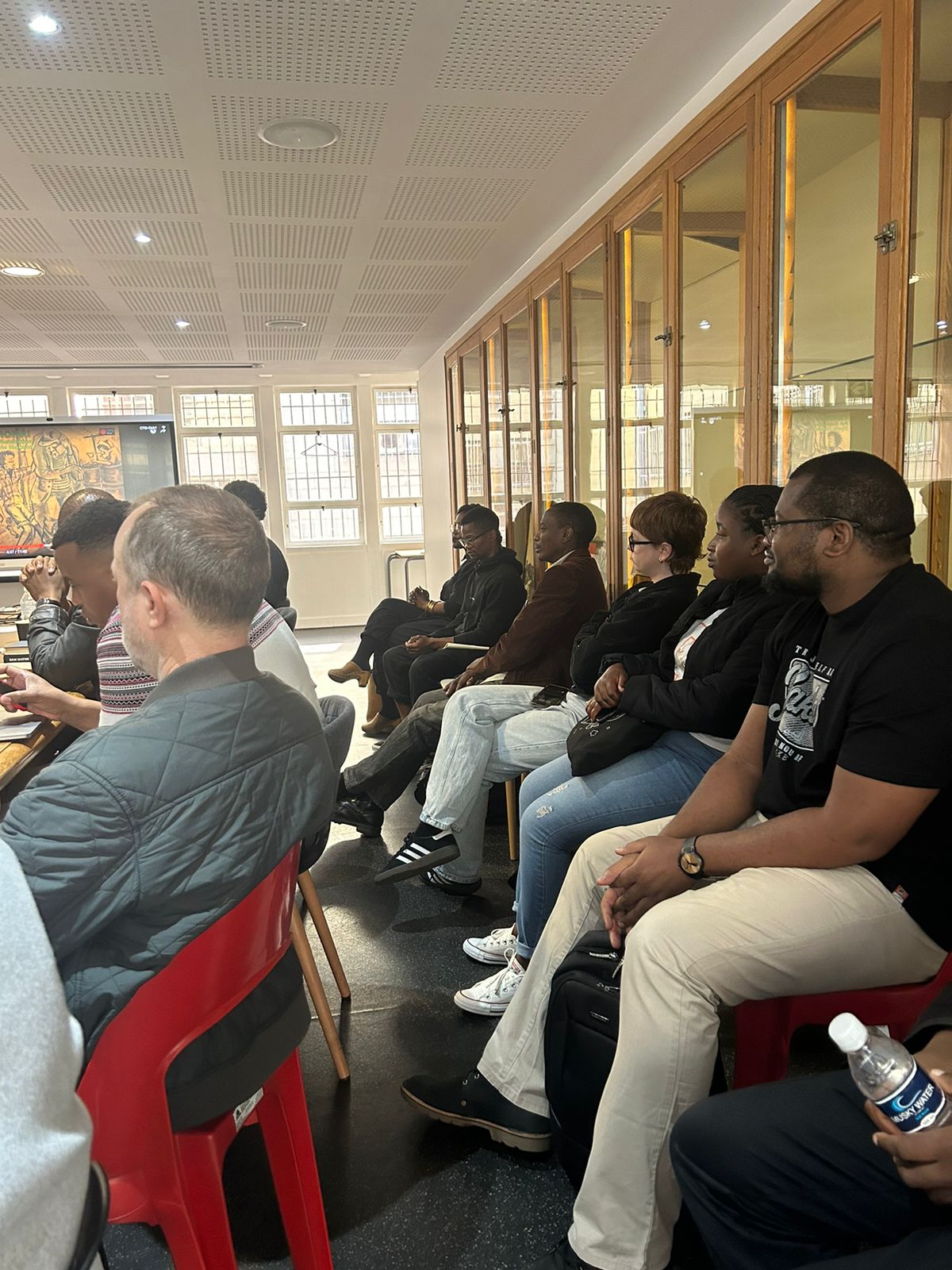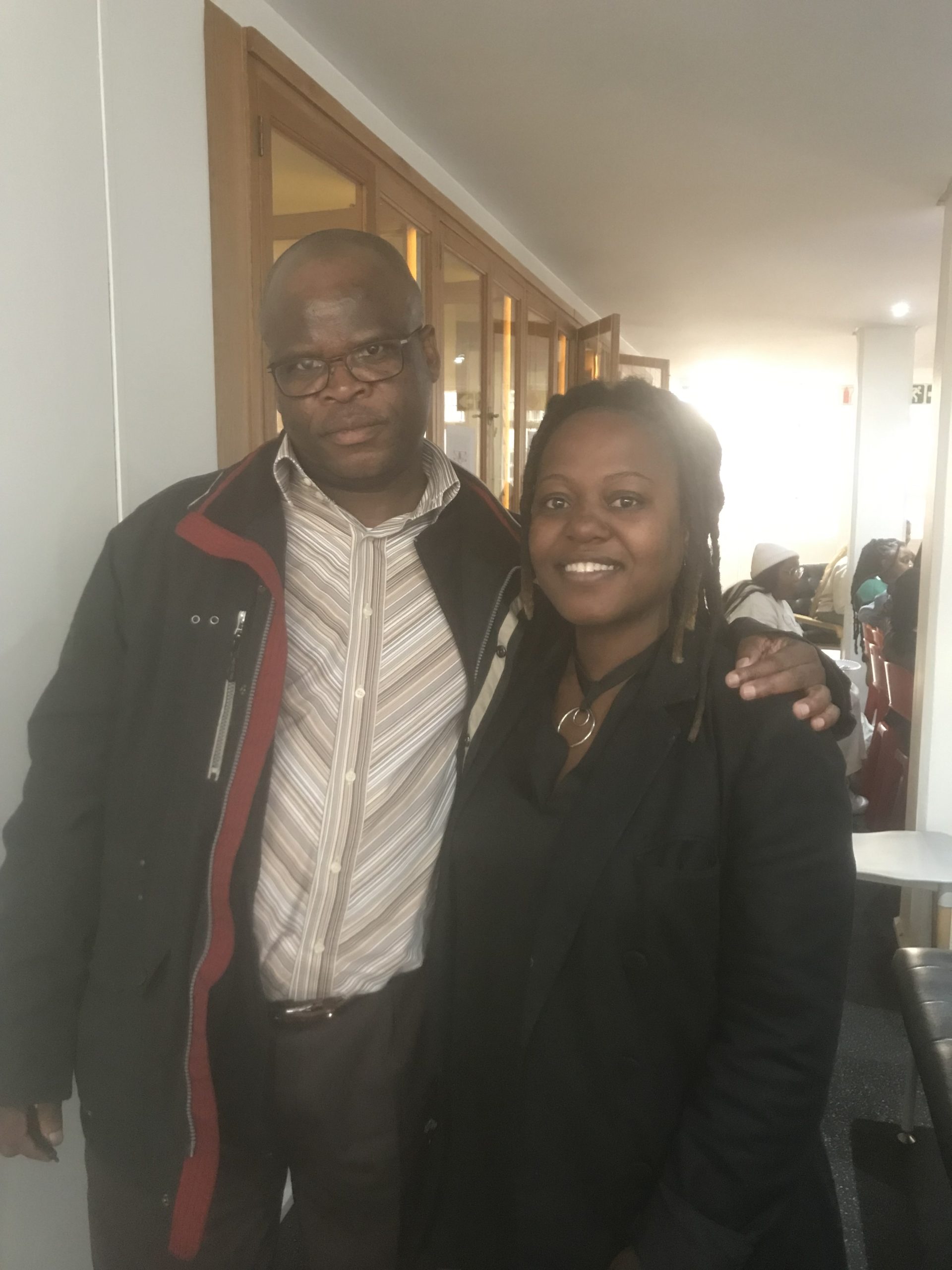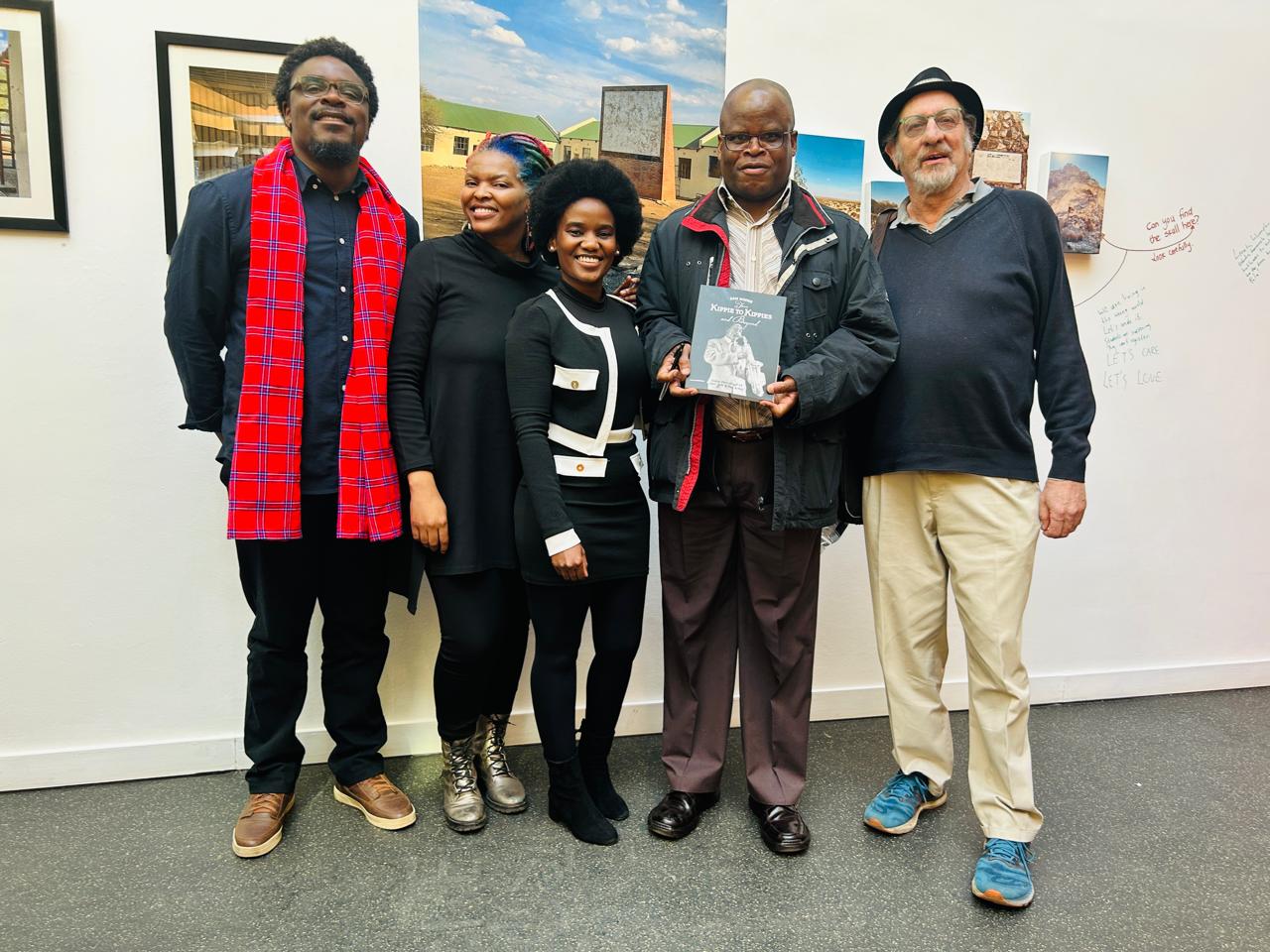On the 25th of July, there was a relaunch of the seminal book by Sam Mathe, From Kippie to Kippies and Beyond (2021). This second edition expands on the evolution of jazz and other musical genres, illuminating the lives and legacies of influential musicians from the 1920s to the present. Held at the Anthropology Museum inside the Robert Sobukwe Building at Witwatersrand University (Wits), the event brought together musicians, academics, and students, examining the book’s deep dive into South Africa’s rich musical heritage.
Sam Mathe is a South African journalist, writer, and publisher, educated at Kwamanala High and Wits University. Mathe began his journalistic career in 1994 with PACE magazine, later working with Drum and Sunday Sun. His work has appeared in True Love, City Press, Mail & Guardian, and other South African media. Mathe is a Mondi Paper Magazine Award finalist and received the Platinum Award (2007) for supporting the Swazi gospel scene. He is also the founding editor of Jazz Life Magazine.
From Kippie to Kippies and Beyond is Mathe’s tribute to South African musicians, with over 300 mini-biographies spanning four generations, from Peter Rezant to Zoë Modiga. Initially focused on older musicians, Mathe began research for his book in 2005, inspired by his own 1994 article on Kippie “Morolong” Moeketsi, considered the father of SA jazz, with landmarks named after him. The book was largely self-funded with some support from the Academic and Non-Fiction Authors’ Association of South Africa and the Norwegian embassy and eventually published by Themba Books.
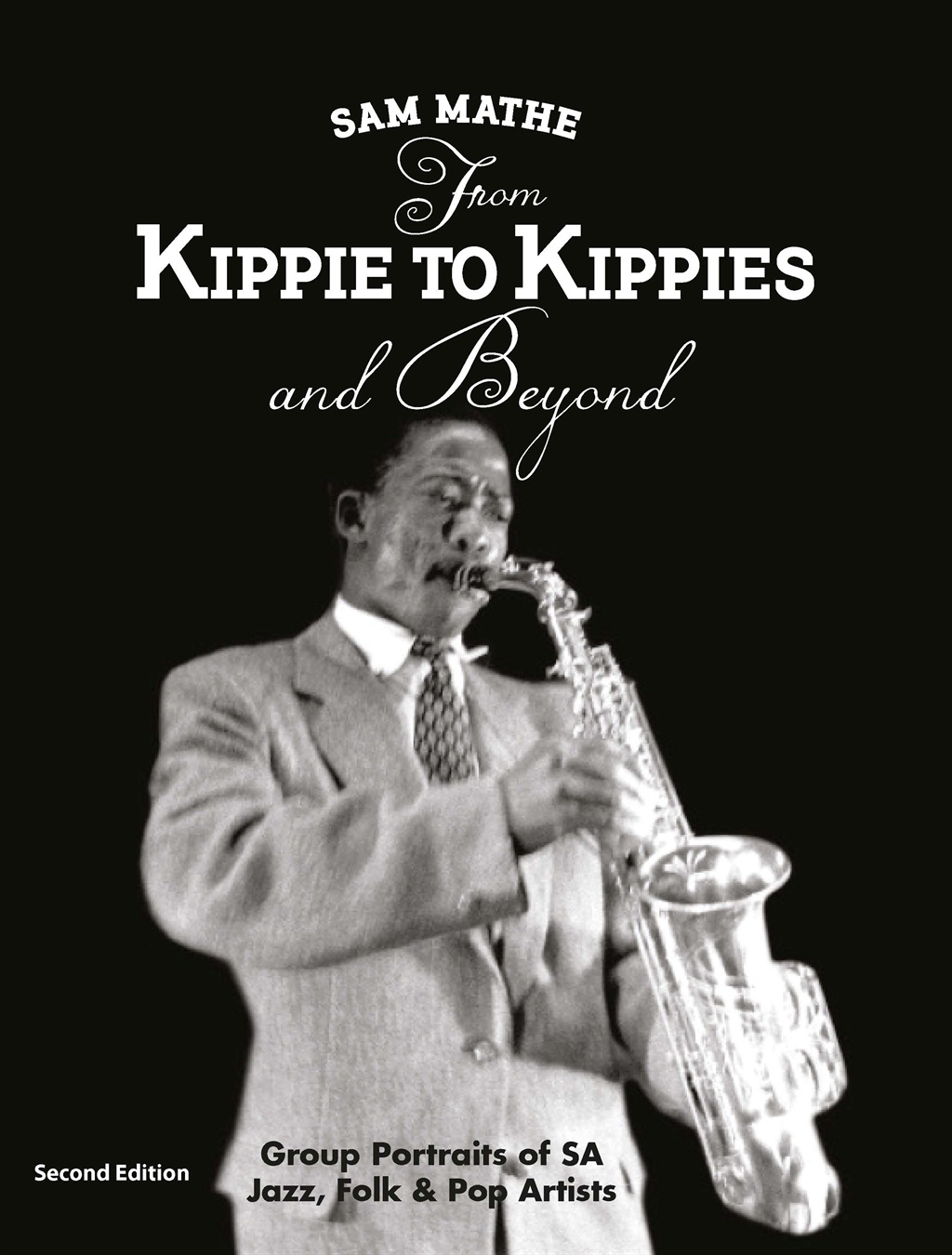
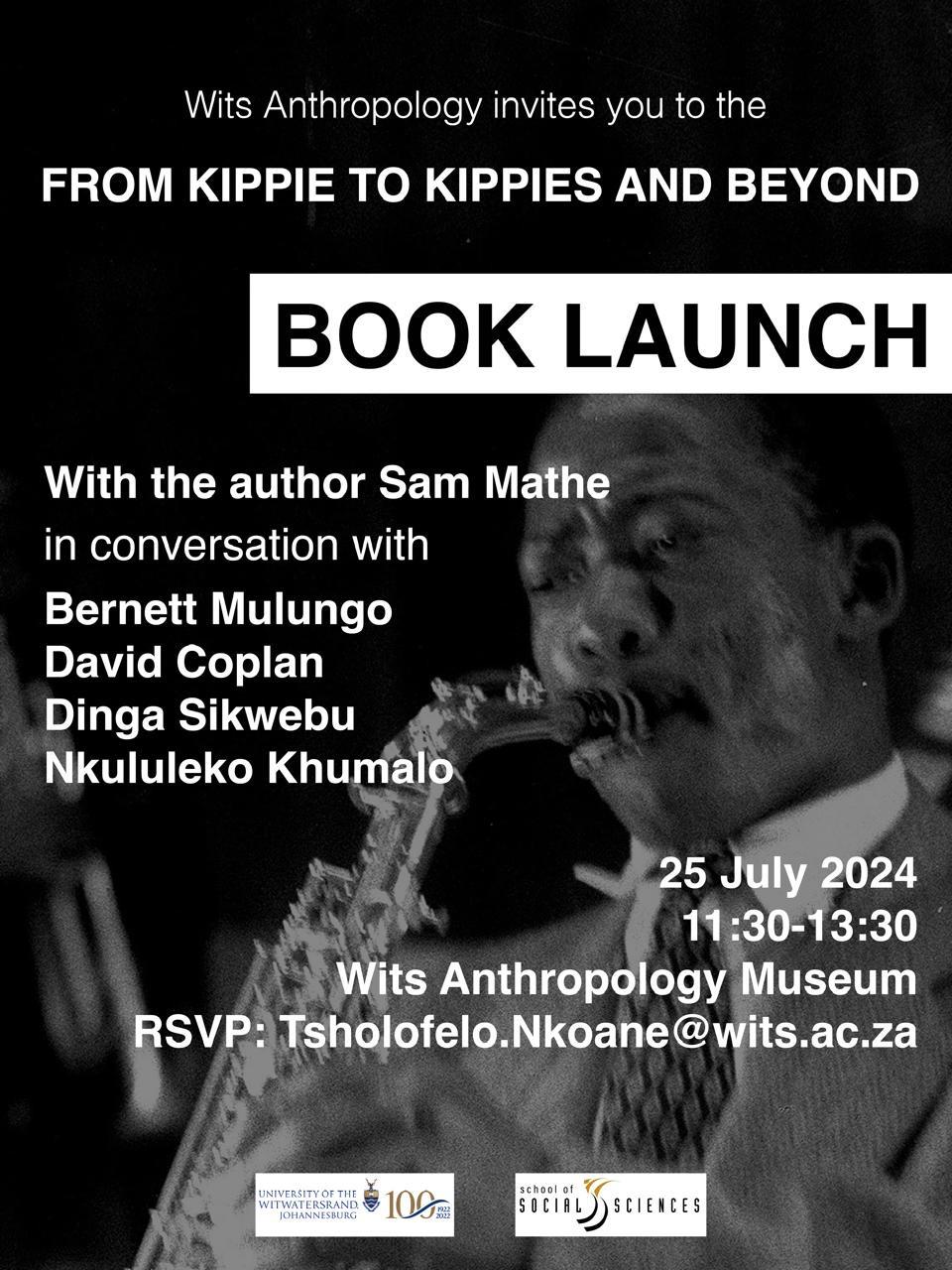
During the Wits launch, ntate Mathe spoke about his early experiences with jazz, “As a child back then, I didn’t understand the significance of it. […] And now […] it’s a very powerful form of music. There’s so much comfort and, you know, nostalgia that comes with jazz. […] And another part that I want to mention is that, as I went through the book, I saw that, like, um, everyone who’s mentioned, it’s more than just jazz artists. […] You know, Lucky Dube was a big deal when I was growing up and stuff. And I think it’s a really good book to read […]”
During the talk, Dinga Sikwebu said, “[…] We don’t have dedicated […] journalists who are behind this music in terms of documenting it, […] you look [..] at just from the nineties, from ’94 actually, […] you have […] record […] labels […] they did their part […] but that was not matched by the writing. Whether it was in the magazines or newspapers or radio interviews for that matter. And TV, it’s a shame because I don’t think we have […] a jazz program on TV. We’ve never had that.”
The book launch featured the author Sam Mathe in conversation with Bernett Mulungo, David Coplan, Dinga Sikwebu and Nkululeko Khumalo, moderated by Dr Kholeka Shange. During the Q&A, a student asked if the book would be available at their department’s new building, an important question. Jovially, Dr Shange responded, “Who are you asking, Princess (presumably the student’s name)? Just to be clear. … Yes, well, definitely we will be in conversation to organize a copy for the museum. We will organize for sure.”
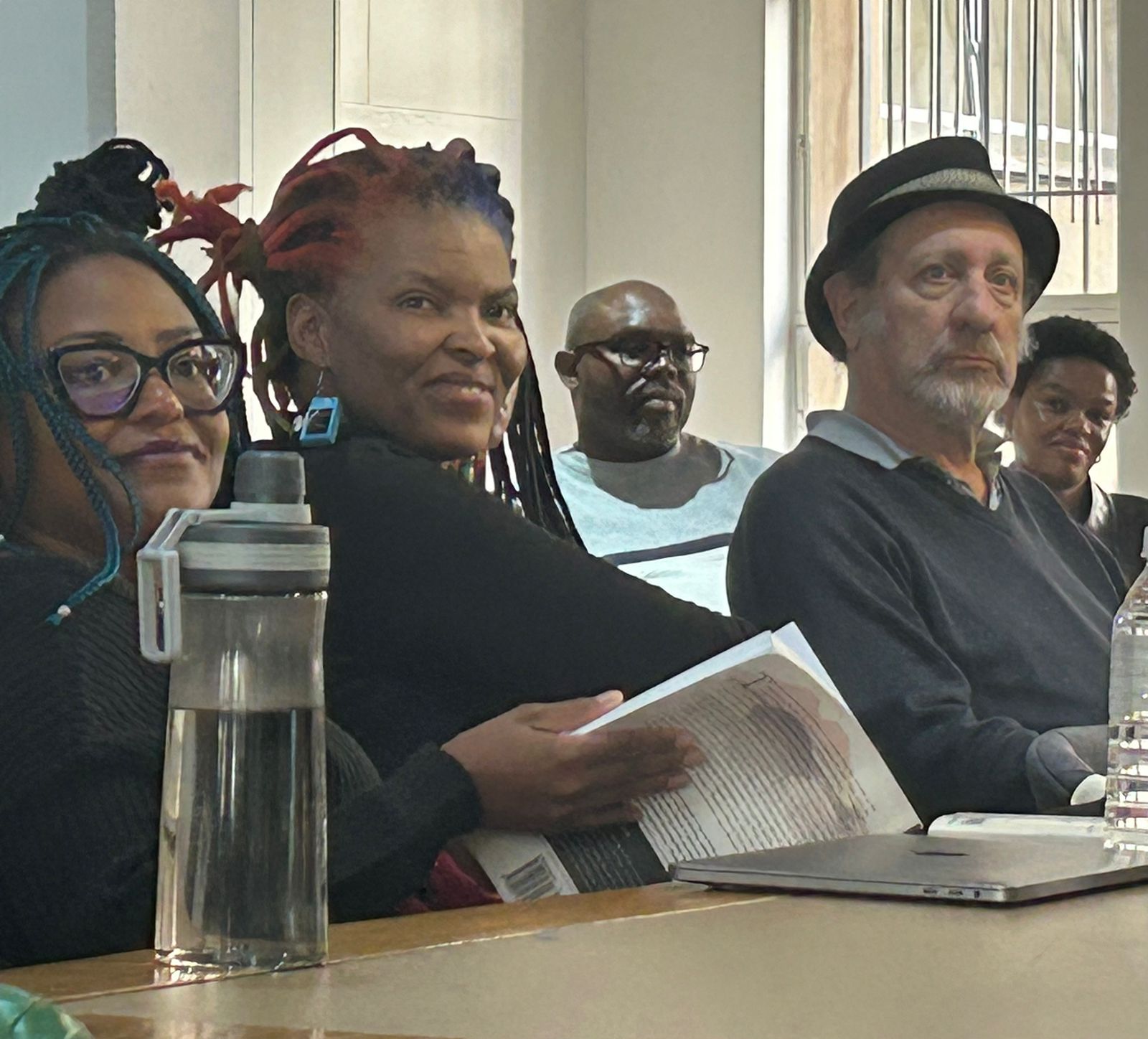
After the talk, I was able to corner prof Bernett Mulungu, a composer and Head of the music department at the University of South Africa (UNISA), for a quick soundbite. He said, “It starts from the 1920s, uh, moving all the way to the current practitioners, which is, uh, something that’s commendable because, you know, sometimes, uh, the group is always written off. It’s a specific select, you know, of a particular era, whenever you’re thinking of South African jazz. So what he has done is very, uh, commendable in that he’s widened the net.”
Later, I was even able to wrangle a confession from the much esteemed Dr Kholeka Shange. I asked, “Do you feel like you’re given […] support and space to do this kind of work?” to which she responded, “I can’t speak for the institution at large because, I mean, it’s interesting that I think this is the first time that this book is being launched within the university. It was launched at Umhlabathi, part of the Umhlabathi Collective […] So, it’s interesting that this book is being launched within the context of anthropology when actually you do have the School of Arts that could have actually launched it.
[…] what exposed me to the book is the fact that I was at Umhlabati and I thought to myself, what would happen if we brought this kind of text into anthropology, particularly because we also have Coplan, who’s written extensively of umculo and its relevance within the anthropological […] context. […] I mean I cannot speak for the students, but I’m hoping that, uh, it’ll spark some interest. Something in them. […] We’ll see what happens. But generally, I mean, my approach to teaching is always thinking about how different knowledges are made. So I pay attention to the politics of language. I pay attention to how images speak.”
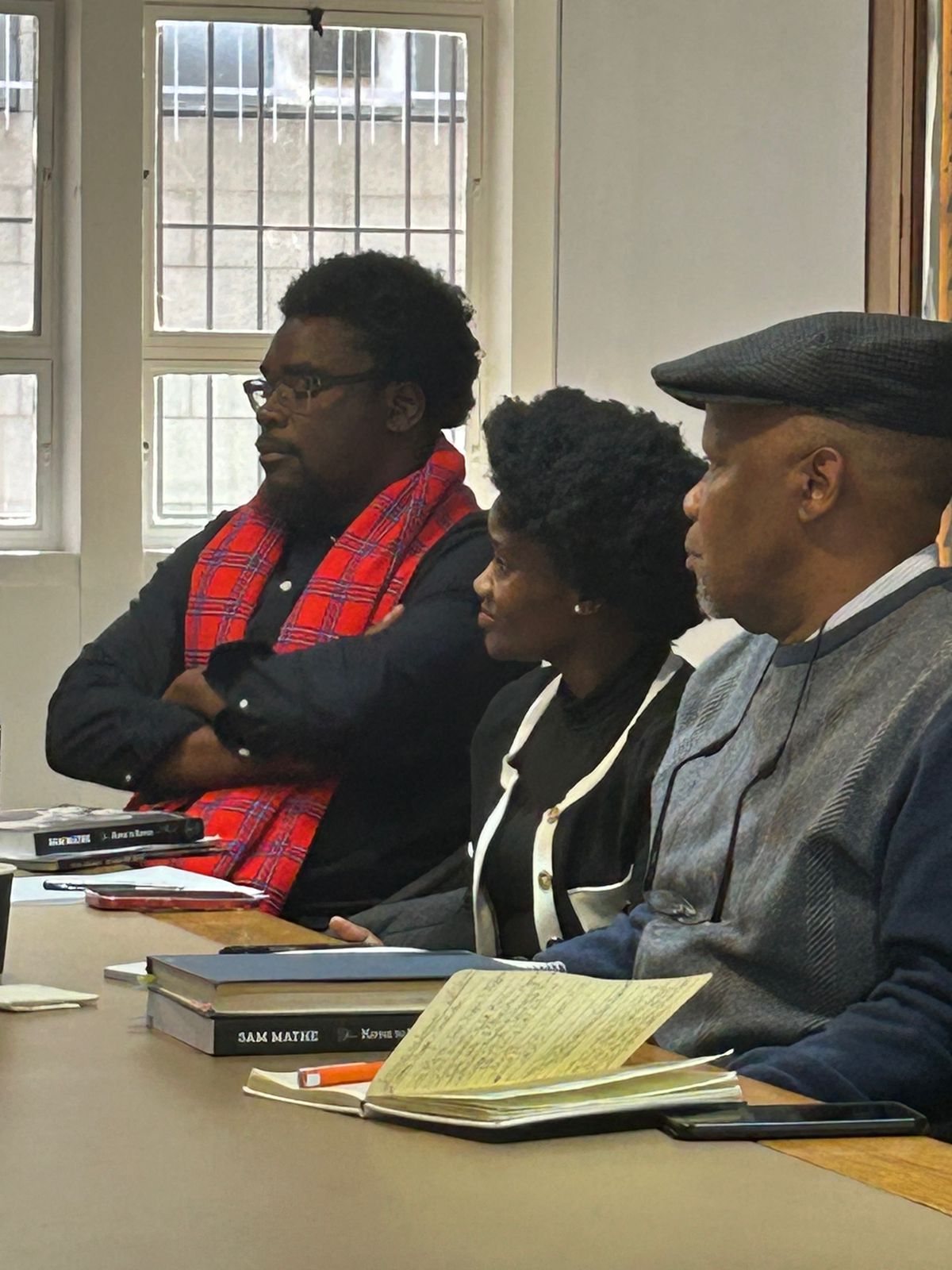
I even had the honour of chatting to the author himself about the launch and he told me “[…] when I first started writing, I was actually writing for these guys, [the] Kippie Moeketsis. […] You can call it a homage to the musicians. It was not about the spotlight on the author. So the fact that the author now is getting the spotlight is a bonus, I must say […], it is of course humbling […] but also encouraging, uh, for me to work harder.
When I asked whether he had plans to write more books, he said, “Absolutely. Or update this one. Yes. And then this second edition, next year is the 100th anniversary of Kippie Moeketsi. That means I will have to include more jazz musicians. And of course, we spoke about pop musicians. I always incorporate them as well in the narrative. So hopefully now they’ll have anything between 20 and 50 additional entries on this very book. By next year, definitely. I’m already working on that. Because this is an ocean. You can’t exhaust that.”
The launch sparked discussions about the intersection of music and academia. There was an emphasis on the need for comprehensive documentation and analysis of musical traditions, with a note on the gap in dedicated journalism within the field. Prof Mulungu praised the book’s contribution to the academic study of music, emphasising, “Mathe’s work […] provides a historical context that enriches our understanding of South African jazz and its global influence.”
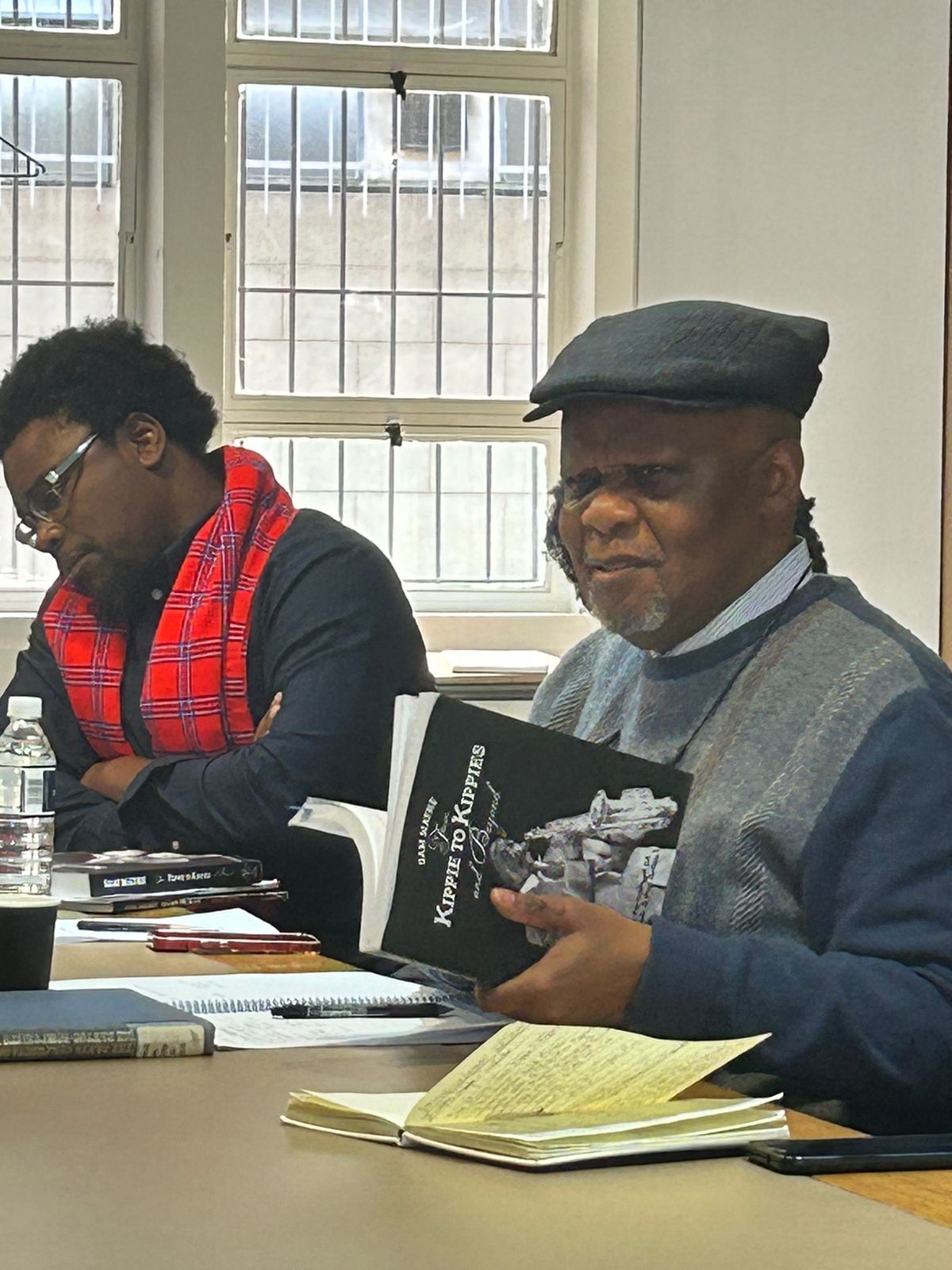
The author appeared well aware of the intergenerational impact of his work, saying, “And the fact that also it’s a generational thing, it comes from that era, uh, the 50s. But I’m writing about contemporary musicians as well. So I’ve always tried to balance these generations. Yeah, because it’s not really about the past.” When I asked him if he had any advice to young aspiring writers and musicians, he gladly replied, “Dream big and believe in your vision. When I was younger, I never imagined I would write such an extensive book. If you can dream it, you can achieve it. Keep pushing and stay true to your passion.
Jazz has touched the world and continues to grow. Music like reggae and gospel has shown us how genres can influence global culture, and jazz is no different,” he said. Mathe’s vision extends beyond historical documentation his upcoming engagements include a return to Swaziland and Zanzibar and his enthusiasm for his work remains palpable. “I’m excited about the future. This book is just the beginning. I plan to include more musicians and update the narrative to reflect ongoing changes in the musical landscape,” he revealed.
The book is a phenomenal milestone in the study of Black sonic traditions and is as Mathe puts it, “a bible” in its own right. In her 2022 Mail & Guardian article, Atiyyah Khan wrote, “Despite jazz in South Africa having deep roots tied to Black social and political history, there are only a handful of books about it. This leaves gaps in the history and knowledge of jazz; Mathe’s book fills some of these gaps, but it can also be used as a launchpad for further research.” Truer words are rarely spoken and we’re fortunate to witness the book and its enduring impact evolve before our eyes.
